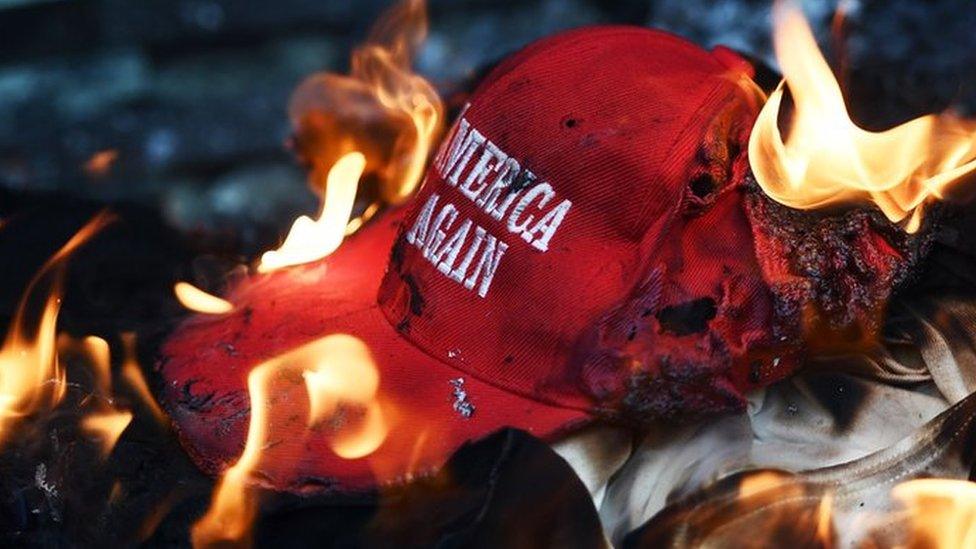Berkeley reverses decision to ban Ann Coulter from speaking
- Published
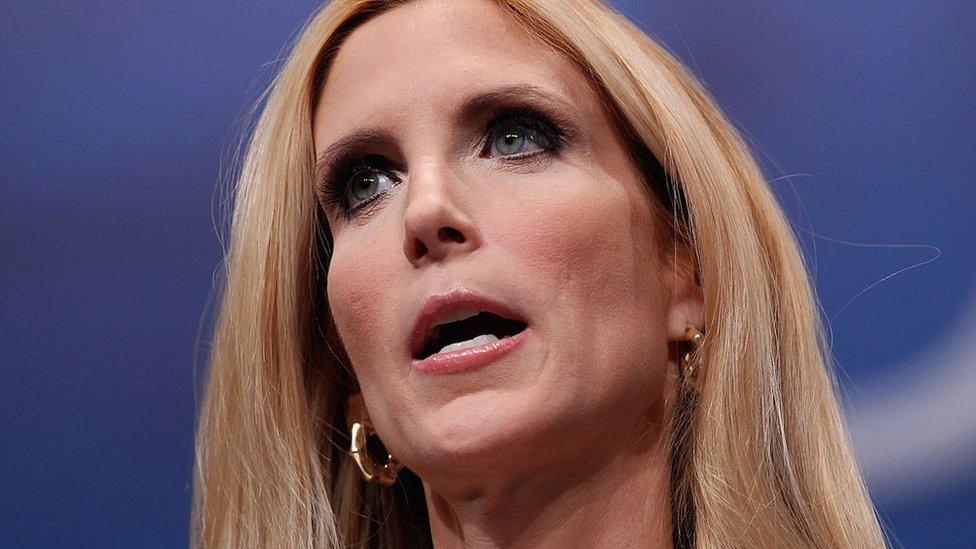
Coulter is no stranger to outrage from those that disagree with her conservative views
The University of California, Berkeley, has reversed its decision to cancel an appearance by conservative firebrand Ann Coulter.
Her visit was cancelled on Wednesday by administrators citing "active security threats", but Republican students said it was an attack on free speech.
UC Berkeley officials later said the speech would be held on 2 May at an "appropriate, protectable venue".
But she plans to speak on the original date, despite the decision.
"Maybe they will arrest me", she said in an email to Reuters.
The campus Republican group have threatened to sue the university over the change of date.
The campus has been the scene of several violent protests in recent months.
Ms Coulter - author of In Trump We Trust - said the school, which gained prominence in the 1960s as the bastion of the so-called Free Speech Movement, had violated her rights.
Speaking on Fox News, Ms Coulter urged US Attorney General Jeff Sessions to investigate the matter because she had been "unconstitutionally banned" from speaking.
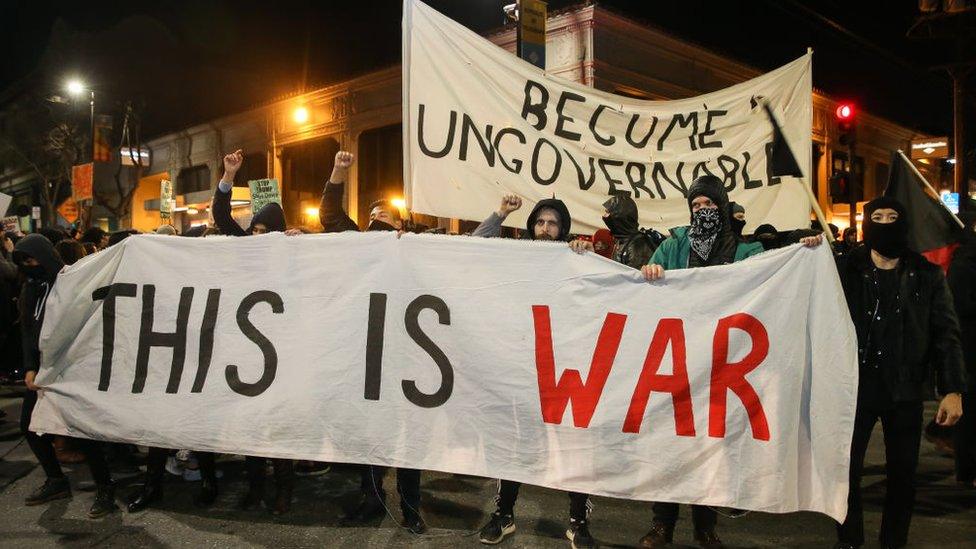
Masked protesters caused major property damage in February at the University of California, Berkeley
She said the university had proposed several rule changes, and she had "called their bluff" by agreeing to the conditions.
According to the Republican group sponsoring the event, the Young America's Foundation (YAF), the university required Ms Coulter speak in the afternoon, only allow students to attend, and announce the location of the speech close to the time of the event.
"Even after Coulter went along with their ruses and guises to shut down her speech, they simply announced, like Kim Jung Un, that it was cancelled," the YAF said.
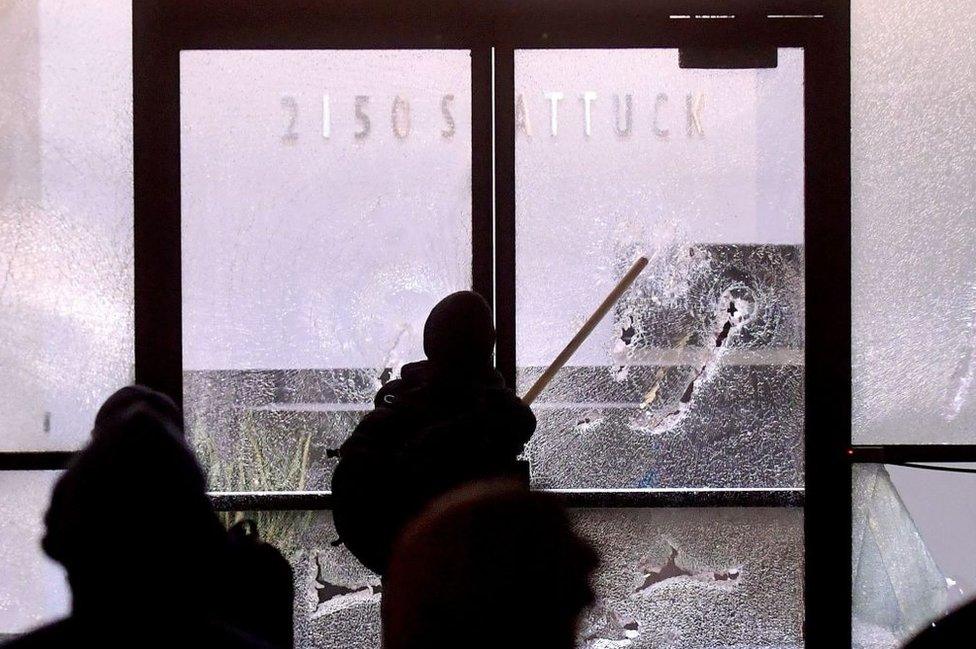
Another image from February's disorder at the University of California, Berkeley
Last February, a speech by British conservative writer Milo Yiannopoulos was cancelled due to widespread protests on campus.
After that incident, in which masked anarchist protesters vandalised property both on campus and in downtown Berkeley, President Donald Trump responded.
He tweeted: "If U.C. Berkeley does not allow free speech and practices violence on innocent people with a different point of view - NO FEDERAL FUNDS?"
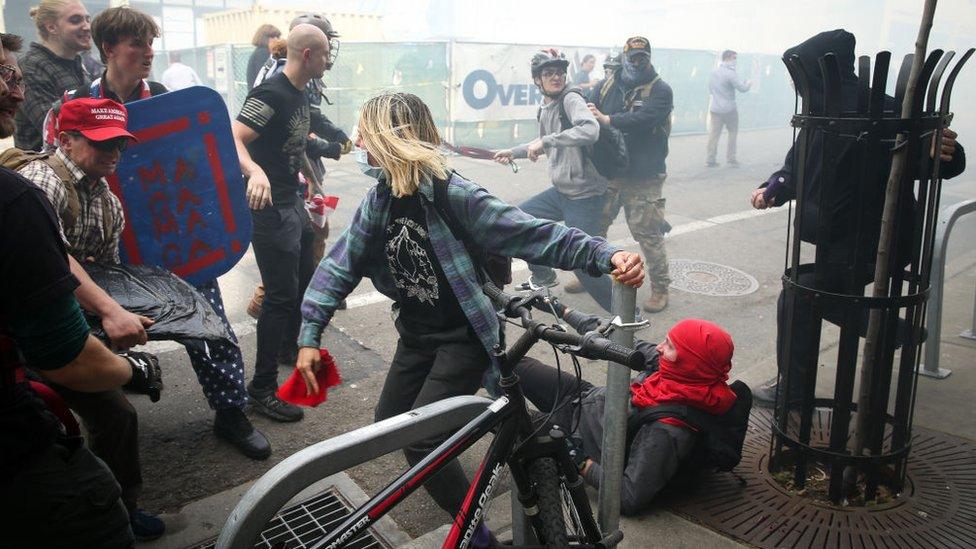
Last weekend violent clashes broke out between pro and anti-Trump activists at Berkeley
Demonstrators caused over $100,000 (£78,000) in damage, and Mr Yiannopoulos had to be evacuated from campus in a bullet-proof jacket.
Last weekend, while thousands of people across the US marched to call upon the president to release his tax returns, brawling broke in Berkeley between right- and left-wing protesters.
More than 20 demonstrators were arrested.
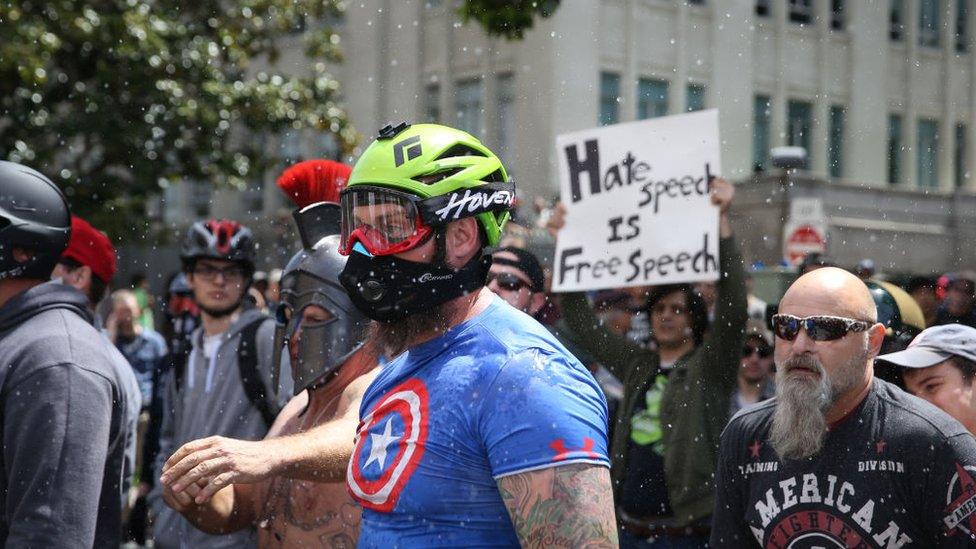
Pro-Trump protesters earlier in April at the University of California, Berkeley
The white supremacist grateful for Donald Trump
Berkeley is not the only American university to face protests against conservative speakers.
On Tuesday night in Alabama, hundreds of students protested against a speech by white supremacist leader Richard Spencer.
Auburn University had sought to cancel the speaking event, but a federal judge forced the speech to proceed.
- Published22 September 2016
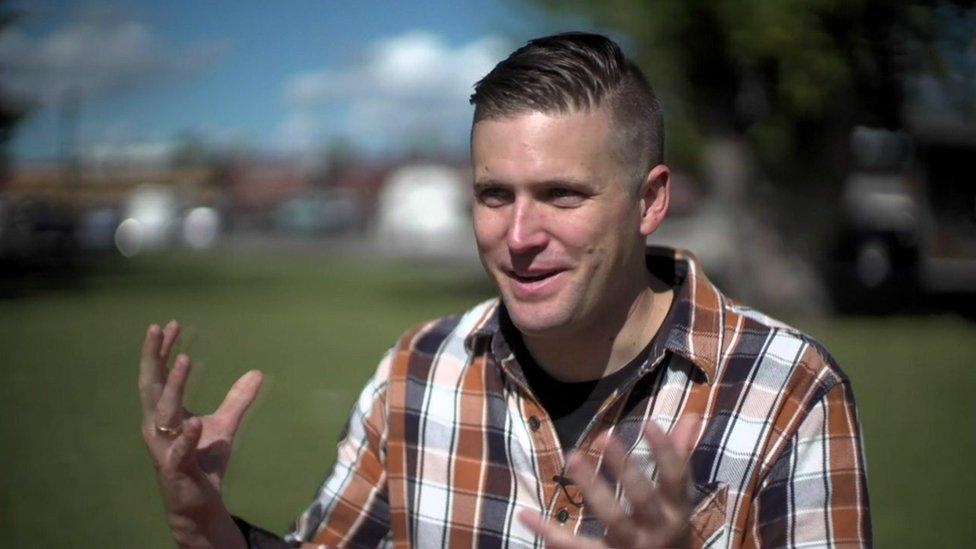
- Published20 February 2017
